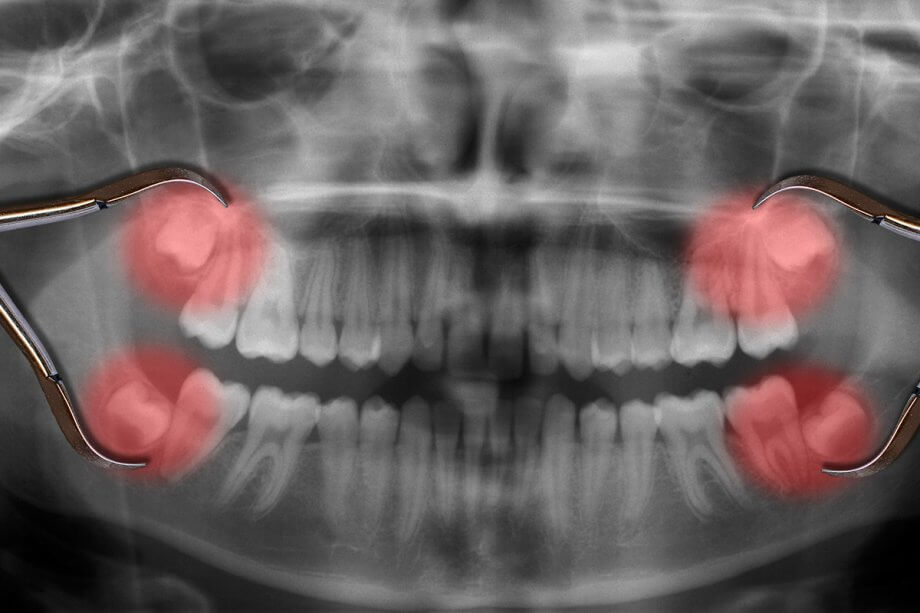Wisdom teeth are the third set of molars that typically erupt in the late teen years or early adulthood. And for many, they aren’t even fully visible before they are removed using oral surgery.
While the procedure is very common, it doesn’t come without the assumption that wisdom teeth removal is more complicated and more painful than other extractions. But, is it?
This article explores the procedure and the aftercare that follows to find out just how painful wisdom teeth removal is.
Why Wisdom Tooth Removal is Necessary
Wisdom teeth are the very last teeth to appear in the far corners of the mouth. And, while some people can welcome them in, many will need to have them removed. This is because wisdom teeth can, unfortunately, lead to all types of dental problems.
- Wisdom teeth can become impacted without enough space to erupt through the gums.
- They may come in at an angle.
- If there isn’t enough room for them, wisdom teeth can wreak havoc on all the other teeth.
Even if wisdom teeth make it through the gums, the impact they can have on oral health is significant when there isn’t adequate space. Tooth decay and gum disease become a real problem in tight spaces as proper brushing and flossing of these back teeth can often be a challenge.
If your dentist or oral surgeon thinks that your wisdom teeth may cause issues, they will recommend that you have them removed to eliminate the risks.
Wisdom Tooth Removal: A Painful Procedure?
Many people have the misconception that wisdom tooth removal is painful. However, the procedure is done using an anesthetic so that no pain is felt for the duration. You may feel some slight pressure, but that’s about it.
Many oral surgeons will provide some sort of sedation, as well, for those patients who may need it. Talk to your dental specialist before your wisdom tooth removal to ensure that your procedure will be as painless as possible.
So, what happens once the anesthetic wears off?
Once the numbness begins to dissipate, you may feel a little discomfort and pain. Over-the-counter pain relievers are usually all that are needed to reduce it and cold compresses for the area can help to reduce any swelling.
You can expect to feel much better within a couple of days following the extraction.
Complications with Wisdom Tooth Removal
One key to successful, fast healing is following the post-operative instructions given to you by your oral surgeon.
Dry socket is a very painful complication that can arise with any tooth extraction — including a wisdom tooth. After the tooth is removed a blood clot will form pretty quickly where the tooth once was. Doing things like aggressively rinsing your mouth, drinking through straws, or smoking, can cause the blood clot to become dislodged. As a result, the roots become exposed and the pain that follows can be quite intense.
Again, follow the aftercare instructions given to you by your dentist to avoid such instances.
Frequently Asked Questions
How long does it take to recover from wisdom tooth removal?
On average, it takes about one to two weeks to fully recover from wisdom tooth removal.
Can I go back to work after a wisdom tooth extraction?
It is recommended that you rest after the procedure and return to normal activities in about 24 to 48 hours.
Wisdom Teeth Removal in Albuquerque
Are you in need of wisdom tooth removal? This is a common procedure performed every day by the team at Rio Grande Oral Surgery.
To learn more or schedule an appointment, contact us at 505-821-2111. Or, request an appointment online.

